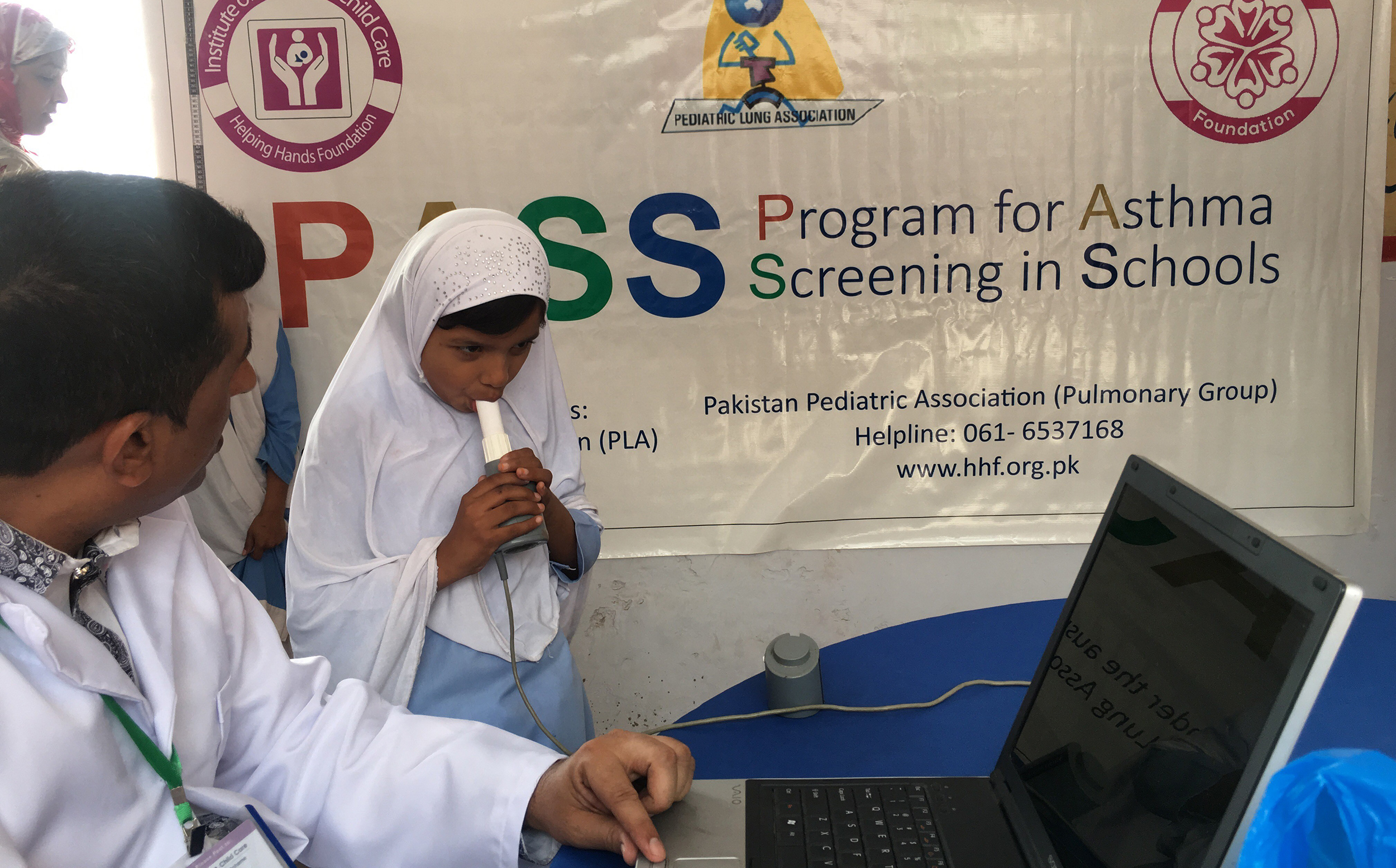
Pakistan
Pakistan is the world’s fifth most populated country with 221 million inhabitants. Approximately 4.3% of these are suspected to suffer from asthma. While asthma profiles in Pakistan are identical to other countries in the region, seasonal asthma is very important in some selected parts of the country. Most seasonal asthma is triggered by various indoor and outdoor airborne allergens, however several factors like occupational asthma in poorly controlled work environments, environmental pollution, and lifestyle changes, also contribute significantly to the increasing asthma prevalence.
Public Health Plan
Seasonal pollen induced asthma caused by pollens from male paper mulberry trees are thought to be responsible for severe morbidity and, occasional mortality, in the spring season in the capital city Islamabad, and some other cities.
As far as treatment facilities are concerned, there are about 100,000 registered physicians in Pakistan. Most of them are trained in the management of asthma both through their educational curricula, as well as continued medical education (CME) activities and conference attendance.
The Global Initiative for Asthma (GINA) strategy is widely followed in Pakistan. Although, most of the GINA-recommended medicines for asthma, including inhaled corticosteroids, β2-agonists, muscarinic antagonists, leukotriene modifiers, and biologics, are available here, asthma still remains underdiagnosed and undertreated.
The Pakistan Chest Society produces updated guidelines for asthma periodically, and focuses not only on physician’s training, but also on patient education.
The Allergy and Asthma Institute Pakistan (AAIP), is involved in research and training for academics and clinical practice in this field. The AAIP is currently engaged in research on asthma, respiratory allergies and other chronic respiratory diseases (CRDs) in Pakistan, in collaboration with the National Institute of Health Research Global Health Research Unit on Respiratory Health (RESPIRE), based at the Usher Institute, University of Edinburgh, UK. In this regard, a physician and public education campaign was launched on social media, for educating the relevant stakeholders and public about these illnesses. Educational videos on various aspects of asthma management and pollen allergy can be viewed on their YouTube channel.
Many tertiary care institutions throughout the country have dedicated asthma clinics, and conduct trainings, seminar and educational activities in addition to providing state-of-the-art clinical services.
